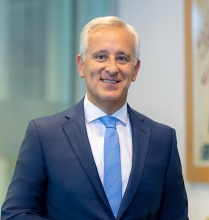International Arbitration Newsletter - October 2019 | Regional Overview: Europe
The most relevant European updates from the global International Arbitration and ADR practice group at Garrigues.
European Union
Swiss Nord Stream 2 files ECT claim against European Union
Swiss company Nord Stream 2 AG, a subsidiary of Russia’s Gazprom, has filed an Energy Charter Treaty (ECT) claim against the European Union (EU)for the alleged “discriminatory” legislation that extends EU internal market rules to gas pipelines importing from non-EU countries.
The dispute relates to the investment Nord Stream 2 has in the construction of a 1,200-kilometre pipeline to transport natural gas from Russia to Germany via the Baltic Sea. In 2009, several amendments affected Nord Stream 2´s as the EU’s 2009 Gas Directive extended EU gas market liberalisation rules to gas pipelines importing from non-EU countries.
Nord Stream 2 falls within the scope of the amendments within German territory and territorial waters, making it subject to EU rules on unbundling, third-party access and tariff regulation.
The arbitral tribunal shall determine whether the EU is in breach of its international law commitments under the ECT.
It is a noteable case as it is the first known investment treaty claim ever to be filed against the EU, which is a signatory to the ECT.
Germany
Germany faces ECT claim following solar reforms
Austrian engineering company Strabag has filed an Energy Charter Treaty (ECT) claim against Germany over changes to renewable energy legislation that affected its plans to develop wind projects in the North Sea.
The claim was brought before ICSID by Strabag and two affiliates, Erste Nordsee-Offshore Holding and Zweite Nordsee-Offshore Holding, in response to changes made to Germany’s Renewable Energy Sources Act (EEGSA).
In 2017, a revamped version of the EEGSA was adopted alongside a new Offshore Wind Energy Act, which for the first time required investors in offshore wind projects to take part in tariff auctions run by Germany’s Federal Grid Agency whereby the bidder offering the cheapest rate for the consumer would be successful.
The claimants owned 15 project companies that planned to develop, build and operate offshore wind energy farms featuring up to 850 wind turbines in the North Sea. As a result of o the EEGSA, the claimants claim their companies were liquidated in 2017.
Italy
Italy faces enforcement of ICSID award by Dutch investor
Italy has obtained the transferal of an enforcement action filed by Dutch entity CEF Energia to the US District Court for the Southern District of New York, having originally been filed before a New York state court.
CEF Energia had previously obtained its award from a Stockholm Chamber of Commerce (SCC) tribunal upholding Energy Charter Treaty (ECT) claims brought over Italy’s reforms to its incentive regime for renewable energy. The tribunal found it lacked jurisdiction over most of the disputed measures, which included a “Robin Hood tax” on energy companies, because of a carve-out in the ECT for taxation measures. CEF Energia was awarded €9.6 million along with €1 million in costs.
The tribunal unanimously rejected Italy’s submission that the ECT did not apply to intra-EU investment disputes and considered the European Court of Justice’s decision on intra-EU bilateral investment treaties in Achmea to be irrelevant to the ECT.
Italy has asked for that case to be transferred to the District of Columbia, observing there are already several enforcement petitions pending in that district that require consideration of the impact of the European Court of Justice’s ruling in Achmea.
Moldova
Paris Appeal Court asks CJEU for Preliminary Ruling on ECT in Moldova claim
The Paris Court of Appeal has sought a preliminary ruling from the Court of Justice of the European Union (CJEU) on the interpretation of the Energy Charter Treaty (ECT) before it decides whether to annul a US$49 million award against Moldova.
The CJEU has been asked to decide whether the meaning of “investment” under the ECT can encompass a debt arising from a contract for the sale of electricity that did not involve any contribution from the investor to the host state.
The underlying dispute relates the attempt by Ukrainian company Komstroy to enforce an award relating to a series of contracts for the supply of electricity to Moldova. Komstroy’s predecessor Energoalians contracted to sell the electricity from Ukraine to a third-party entity in the British Virgin Islands, which would then resell it to Moldovan state entity Moldtranselectro. After a series of defaults in payment, Komstroy filed an UNCITRAL arbitration in 2010 under the ECT to recover the money.
Moldova was ordered to pay US$46.5 million in damages, pre-award interest and costs. Moldova applied to the French courts to set aside the award on three jurisdictional grounds.
Spain
Spain seeks to annul biggest ECT solar award
Spain has registered before ICSID an application to annul the NextEra award and a provisional stay of enforcement.
The €290 million award was obtained in favour of Dutch subsidiaries of NextEra in the context of a dispute over Spain’s reforms to its renewable energy sector. The award concluded that NextEra had a legitimate expectation, including on the basis of government representations, that the subsidy regime would not be changed such as to undermine the security and viability of the claimants’ investment.
NextEra filed a petition in June 2019 in the US District Court for the District of Columbia to enforce the award.
German investors file new ECT claim against Spain
A group of German investors formed by VM Solar Jerez and four other German holding companies together with businessman Helmut Vorndran have launched the latest Energy Charter Treaty (ECT) claim against Spain over reforms to the state’s renewable energy subsidy regime.
The dispute relates to Vorndran´s (co-founder of German private equity firm VM Capital) and other investors´ investments made in a solar park near the Spanish city of Jerez in Andalusia. They allege that the renewable energy reforms violated the fair and equitable treatment standard of the ECT. The damages claim is not yet quantified.
Contacts



-
+52 55 1102 3570
-
+52 81 8153 3900
-
+52 442 296 6400
-
+57 601 326 69 99



